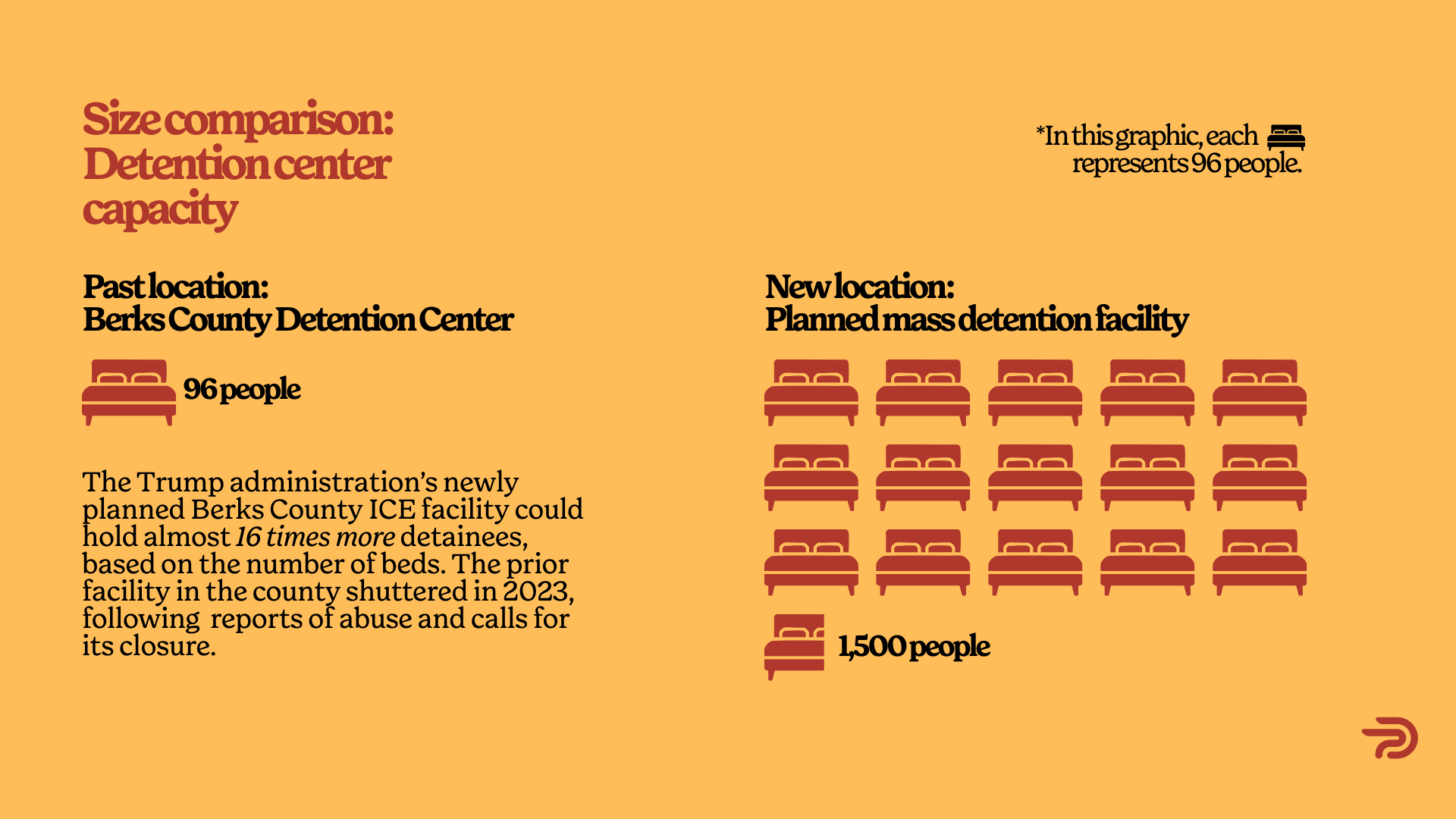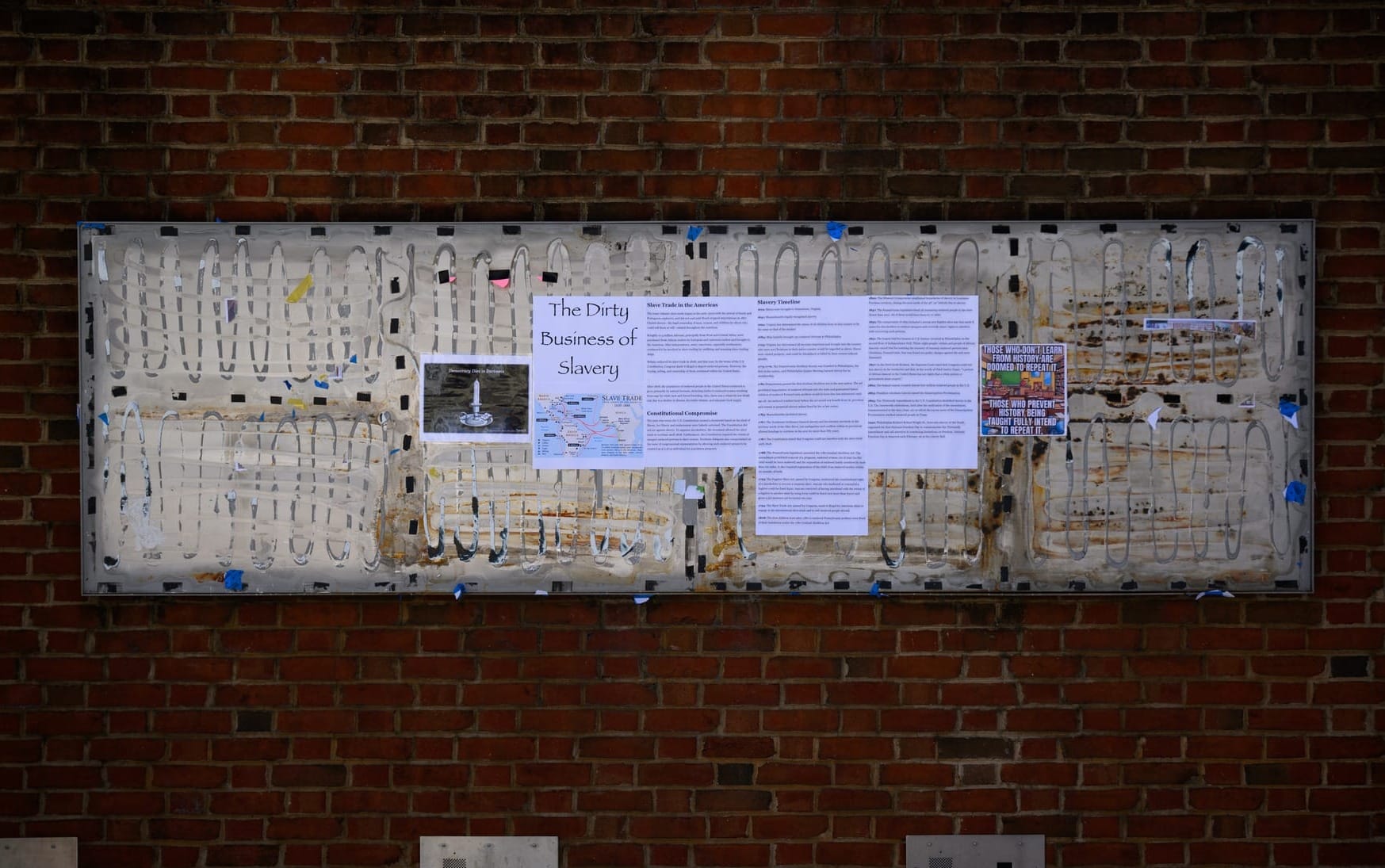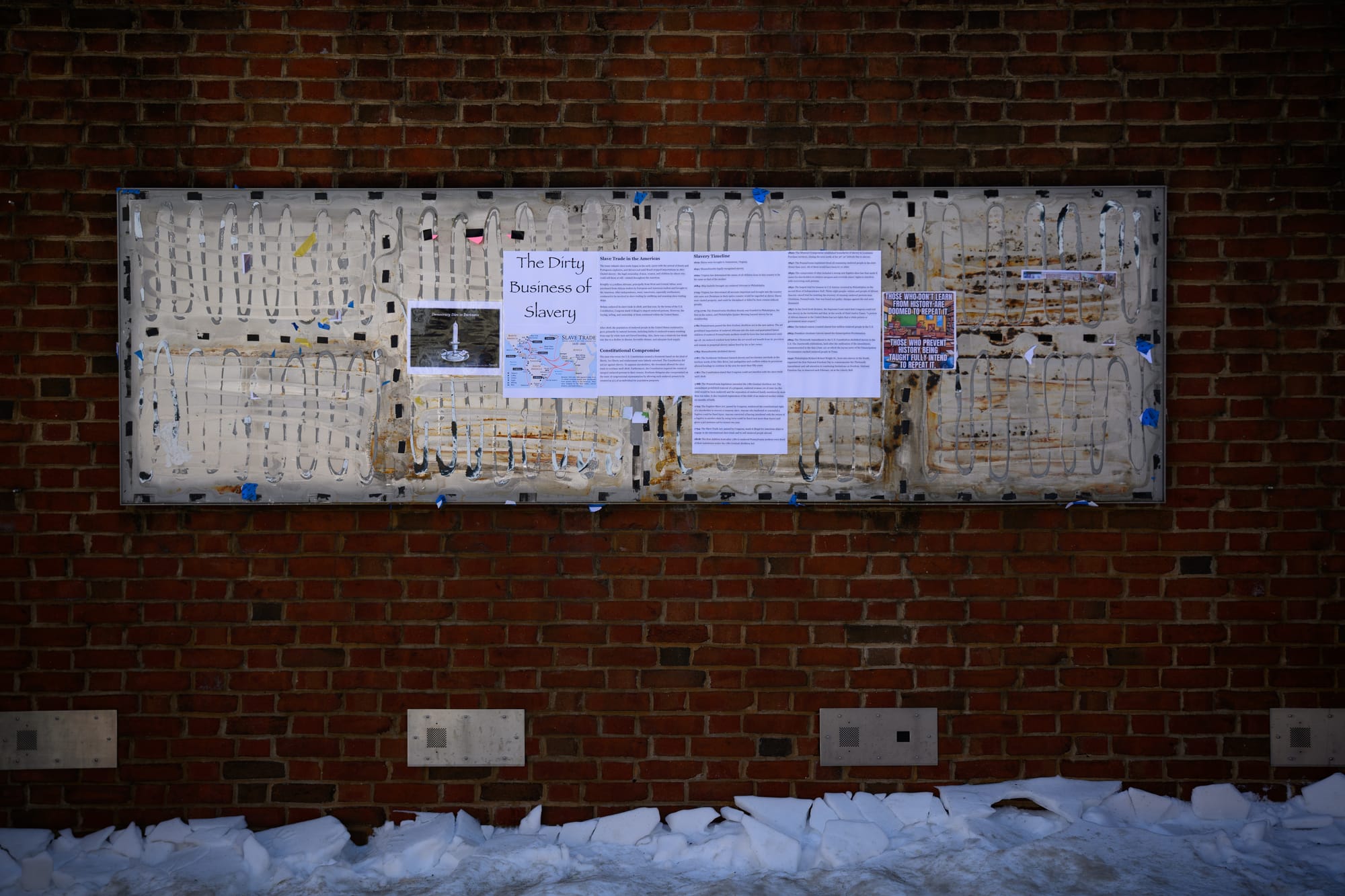Political Misinformation Hits the Philadelphia Eagles
A deceptive ad using Eagles branding misled viewers, blending truth and fiction to spread misinformation online.
This weekend, Philadelphia residents were blindsided by fake news: The Philadelphia Eagles had supposedly endorsed Vice President Kamala Harris.
The deceptive ad, cleverly designed with Philadelphia Eagles branding and a link to the team's website featured a cartoonish image of Harris donning a football helmet and clutching a football. It was a masterclass in misinformation, blending just enough truth with fiction to catch even savvy viewers off guard. Even me, as an Eagles fan and political writer who is always looking at political information, was almost tricked for a moment by the stealthily presented ad.
Unsurprisingly, the Eagles swiftly disavowed the advertisement. As the team and election officials scramble to uncover the culprits behind this digital deception, one thing is abundantly clear: we now inhabit a political landscape where misinformation isn't just present—it's pervasive.
This incident is merely the latest in a string of high-profile misinformation campaigns. Last month, Donald Trump shared a fabricated AI-generated ad on his social media, falsely claiming an endorsement from Taylor Swift. The pop icon, no stranger to digital manipulation, has been embroiled in legal battles against the spread of gross AI-generated, pornographic images targeting her. Meanwhile, tech mogul Elon Musk has been disseminating false political information to his vast audience on X, garnering billions of views with each misleading post.
However, the scourge of misinformation knows no party lines. Democratic activists have also fallen prey to and propagated false narratives. Mark Hamill, the beloved actor turned political commentator, recently shared a photo criticizing Republicans for a policy proposal they had neither supported nor endorsed. In the aftermath of the shocking Trump assassination attempt, prominent Democrats like Joy Reid publicly questioned the extent of Trump's injuries, despite the FBI's clear statement that a bullet had indeed struck the former president.
As we hurtle towards another contentious election season, vigilance in the face of political ads and online misinformation is important. People who push fabricated political stories and AI-generated imagery have one goal: to sow chaos and confusion among voters.
States nationwide are beginning to grasp the gravity of election misinformation and are implementing policies and procedures to safeguard voters from the influence of fake news. Pennsylvania, for instance, has launched a dedicated webpage debunking a series of election-related falsehoods, including the myth that noncitizens can register to federally vote in the state. Similarly, North Carolina has developed a “How to Spot Misinformation” guide for its residents.
Despite these efforts, every citizen has to have their own tools to protect themselves from falling victim to political misinformation. Here are some crucial strategies studies have shown that can help combat misinformation:
1. Look for the “paid for by” disclaimer: Federal law mandates that all legitimate political ads include a disclosure stating who funded the advertisement. The absence of this insignia should immediately raise red flags.
2. Seek transparency: When consuming political content, ask yourself: Who is the author? How is this publication funded? Can I contact the writer directly? A lack of clear answers to these questions should prompt skepticism.
3. Utilize fact-checking resources: Reputable organizations like FactCheck.org (run by the Annenberg Public Policy Center) and PolitiFact (operated by The Poynter Institute) offer invaluable services in verifying political claims and stories.
4. Be wary of emotional manipulation: Misinformation often relies on triggering strong emotional responses. If a piece of social media or news content seems designed to provoke outrage or fear, approach it with caution.
5. Cross-reference information: Don't rely on a single source. Verify claims across multiple reputable news outlets before accepting them as fact.
New technology brings benefits to our communities, but also its own set of new challenges. As we navigate this new era of digital deception, our democracy's health hinges on our collective ability to discern fact from fiction. The Philadelphia Eagles incident is an honest reminder that skepticism is not just a virtue in the information age—it's a civic duty.
The battle against misinformation is not one we can afford to lose. Our votes, voices, and democracy hang in the balance. As we move forward, let us commit to being not just consumers of information but informed civic voters in our increasingly complex digital world.





